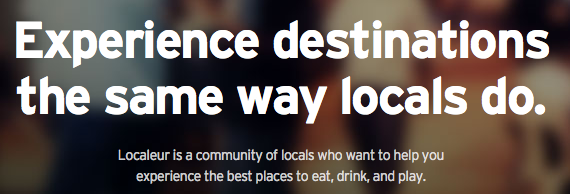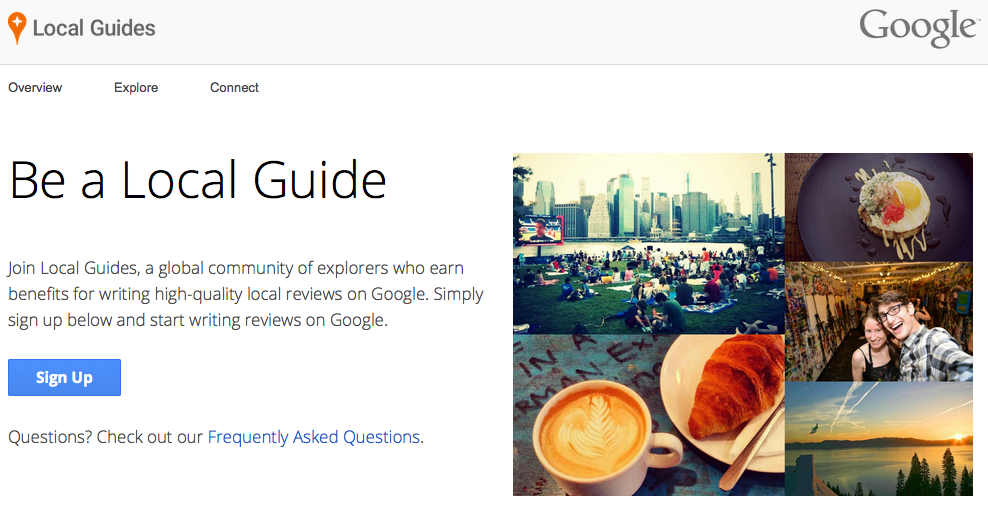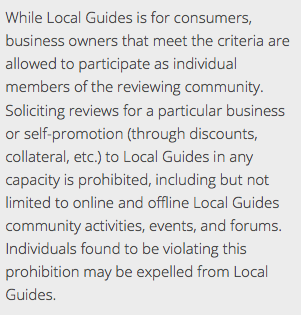There’s been an underlying trend in travel over the past couple of years: the desire to experience destinations like a local. While cookie-cutter vacations like Disney, beach resorts or cruises will always attract their lion’s share of tourism dollars, more and more people are seeking authentic, off-the-beaten path experiences. Nothing new, here.
Travel has always been about seeing and doing things but also meeting people, exchanging and finding a sense of place. But with the advent of the mobile web, social media and review sites, all of this is becoming complex and more simple at the same time. And what better way to discover a new city or area then through the eyes and experience of a local resident?
Doing it like a local

Nowadays, there is an incredible amount of travel sites connecting travelers with local guides. Consider this non-exhaustive list of sites and/or mobile apps, for example:
- Like a local guide
- Localeur
- Localyte
- My Destination
- Staying Native
- Tours by locals
- Travel like a local
- Vayable
From AirBnb to Uber, most players in the emerging sharing economy also play on this front. Not to mention popular apps such as Foursquare or Urbanspoon (recently acquired by Zomato), competing with Yelp and TripAdvisor in the business of influential online reviews for hotels, restaurants, attractions, tours and activities. All of these sites and apps are competing with another key player, which is not sitting idle: Google.
Google Reviews
Google has been showing reviews in its search results for a while. Up until 2011, reviews were provided through a joint agreement with TripAdvisor. Since early 2012, it started showing reviews powered by Zagat and Frommer, which had been acquired the previous year.
Google Reviews reflect consumer feedback, usually provided through a Google+ connection. And now, just in time to ring in the new year 2015, comes the Local Guides initiative.
 This is not a 100% new initiative, as it replaces the City Guides program, which was flying under the radar, so to speak. With its levels 0 to 4 for contributors, it resembles in many ways how TripAdvisor gives contributor badges, or Yelp’s Elite program.
This is not a 100% new initiative, as it replaces the City Guides program, which was flying under the radar, so to speak. With its levels 0 to 4 for contributors, it resembles in many ways how TripAdvisor gives contributor badges, or Yelp’s Elite program.
Reviews will be closely integrated with Google Maps, thus enhancing how search results get populated.
 It should be said that the Local Guides program is for individuals, not brands or businesses. However, travel brands ought to take notice. Just like they should claim their Page and manage reviews through Google My Business, travel brands can respond and interact with Local Guides, as Google explains:
It should be said that the Local Guides program is for individuals, not brands or businesses. However, travel brands ought to take notice. Just like they should claim their Page and manage reviews through Google My Business, travel brands can respond and interact with Local Guides, as Google explains:

What next for travel brands?
While this is an interesting development by Google, travel brands should cover their basics and make sure they properly manage their presence via Google My Business. If your company has a brick and mortar selling address, then you should have a Google Page, and make sure the proper information is filled within the Local Search listing (formerly known as Google Places) in your area.
Managing reviews is the first step in ensuring a healthy online reputation, which can in turn impact your overall sales and marketing performance.
Click here for more details about Google My Business
Read also: Best Practices in Travel: Online Reputation









Leave a Reply